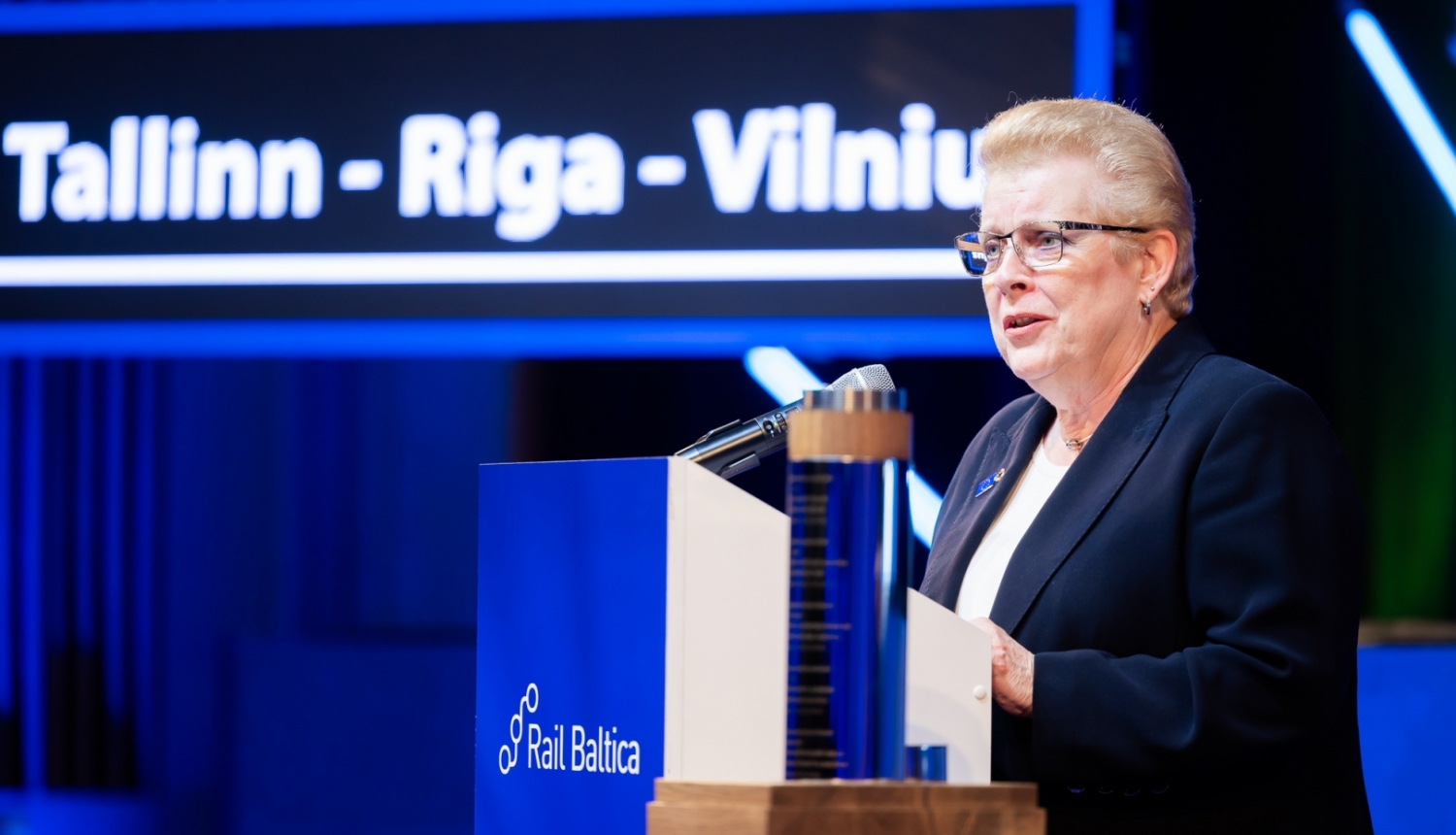Mme Catherine Trautmann, the European Coordinator for the North-Sea Baltic Trans-European Transport Network (TEN-T), which includes Rail Baltica, visited Riga to attend the Rail Baltica mainline kick-off event in Latvia on 21 May 2024. During her visit, she met with the management teams of Rail Baltica delivery organizations and the officials from the relevant ministries to discuss the project's status and key priorities.
Mme Trautmann also took time out of her busy schedule to meet personally with the entire teams of Rail Baltica delivery organizations. She addressed those working on the project, answered their questions, and emphasized the importance of bringing the project to completion. "Now is an exciting time when we can see the project materializing, with mainline construction starting in all three countries," she stated. The European Coordinator highlighted that the public can now witness tangible progress, marking this phase of construction as a significant visible advancement.
Strategic and economic impact
With a deadline set for 2030, Catherine Trautmann acknowledged the competitive nature of European transport infrastructure projects and underscored the necessity of demonstrating the Rail Baltica project's maturity. She also stressed the importance of the agreement among the three Baltic countries on the phased implementation of the project and on the scope of the first phase. Implemented in phases, it still must be ensured that the project is completed in full scope for the benefit of all involved countries and cities.
"This is a genuinely European project," remarked Mme Trautmann. "It is not solely about numbers or economic viability but also about ensuring equality among EU citizens, regardless of their country's size." She also highlighted the strategic significance of the Rail Baltica project for European security, referencing NATO's emphasis on its timely completion. The connection between Kaunas and the Polish-Lithuanian border is especially critical, as it serves as a vital link in the broader European transport network.
Trautmann acknowledged the unique challenges faced by the Rail Baltica project. The lack of prior high-speed rail infrastructure experience in the Baltics means the region needs time to build the necessary expertise. Additionally, the project's multi-country nature adds another layer of complexity. She emphasized the crucial role of RB Rail as the central coordinator, a collective decision by the member states to unify the national segments of the project.
Public investments in transport infrastructure not only create opportunities for private businesses but also add value to the region. This is particularly important given current geopolitical challenges, such as the war in Ukraine and rising inflation.
Optimism and belief in Baltic resilience
In her closing remarks, Catherine Trautmann expressed confidence in the resilience and strength of the Baltic people. Reflecting on their historical struggle for freedom, which she witnessed as a politician in the 1980s and 1990s, she conveyed her belief that this same resilience would ensure the successful completion of the Rail Baltica project.
"Funding can and must be found," Trautmann insisted, reaffirming her commitment to the project's success. She concluded on a hopeful note, emphasizing that the unique nature of Rail Baltica demands innovative solutions and a steadfast approach to its delivery, leveraging the collective strength and heritage of the Baltic nations.
In the last week of May, Trautmann will attend a cornerstone event in Estonia to mark the commencement of the Ülemiste terminal construction. This series of events signifies a significant milestone as the Rail Baltica project transitions from planning to tangible construction across all three Baltic states.
About Rail Baltica
Rail Baltica is one of Europe's largest high-speed infrastructure projects, aiming to establish a modern and sustainable rail link that connects the Baltic States of Estonia, Latvia, and Lithuania with the European rail network. It is also a part of the trans-European transport corridor.
Rail Baltica will be a fully electrified, double-track railway with a standard gauge of 1435 mm and will be equipped with ERTMS (European Rail Traffic Management System) and designed to meet European standards. With a design speed of 249 km/h, Rail Baltica will significantly reduce travel times between the Baltic States and major European cities. It will serve as a modern infrastructure for passenger, freight, and military mobility, promoting accessibility and facilitating business, tourism, and cultural exchange. Additionally, the project will enhance the Baltic region's position as a vital transit hub, fostering stronger trade connections and promoting regional cooperation.
About RB Rail AS
RB Rail AS is a multinational joint venture of Estonia, Latvia and Lithuania established to lead and coordinate the implementation of the Rail Baltica Global Project, the first infrastructure development project of this scale in the Baltic region. More about Rail Baltica global project: www.railbaltica.org
For more information:
Signe Nīgale
Head of Communication and International Relations Department
RB Rail AS
Phone number: +371 29116146
E-mail: signe.nigale@railbaltica.org
www.railbaltica.org



